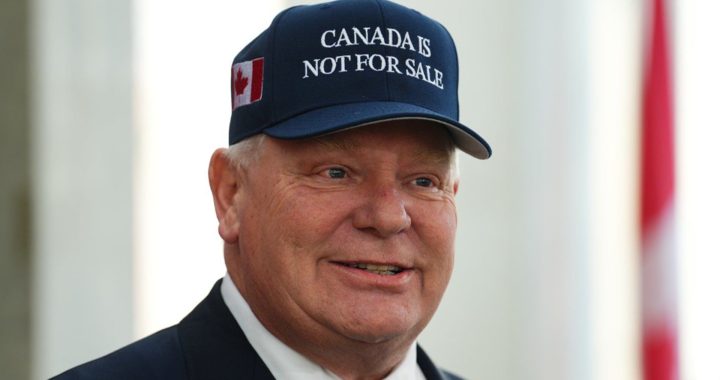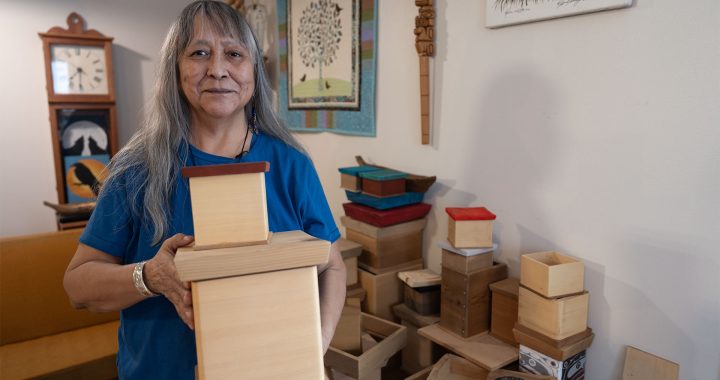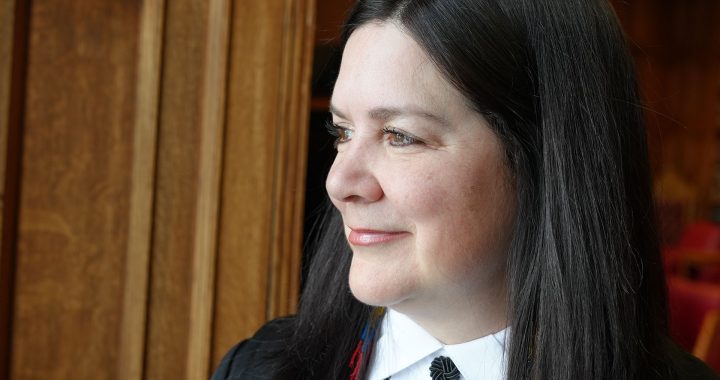Kuujjuaq, an Inuit town in northern Quebec, has been hosting 2SLGBTQ+ pride parades for the past few years – but Two-Spirit youth from the community say a lot of progress has yet to be made.
Niivi Snowball, 16, said they’ve already made waves among the 2,700 people living in Kuujjuaq. At last year’s Aqpik Jam, they performed a song dedicated to their then-girlfriend.
“When I walked off the stage, that’s only when I realized what I had done, because someone was like, ‘You’re so brave to have come out in front of so many people.’ I didn’t realize what I had just done, because to me, it was like a known fact and it was like, normal,” said Niivi.
“Some older Inuit generation who was friendly with me before have gotten like really cold towards me, or like for example like I’ll be going through school and someone will just like scream the F slur towards me.”
They say they’ve coped with this rejection through music.
“For me as a musician, whenever I go through something like super traumatic or just an experience that like has stayed with me, as long as I get a good song ran out of it, then I think it was worth it,” said Niivi.
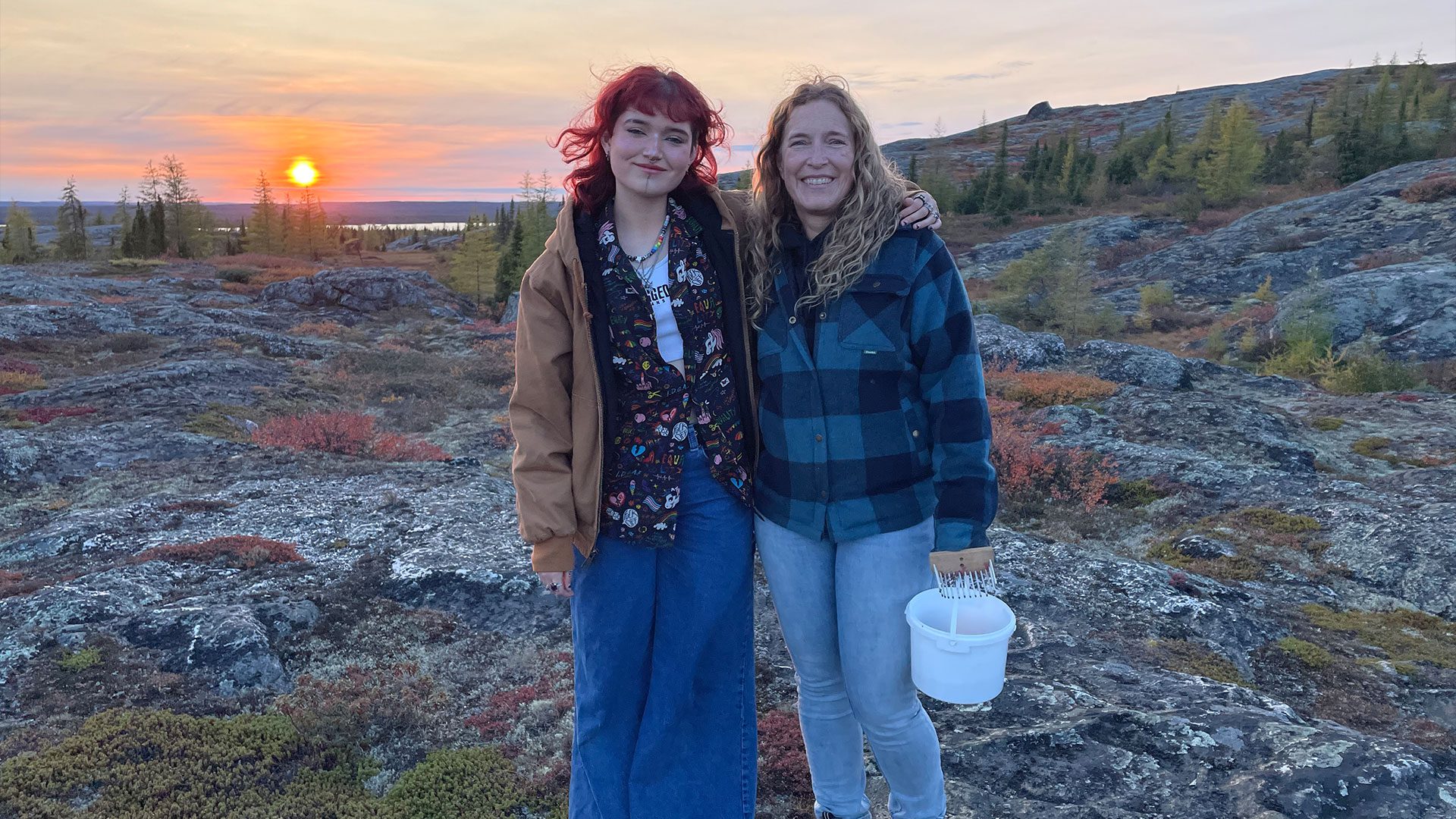
Niivi is Two-Spirit – for them, the term represents the duality of their gender and sexuality. They say they wake up feeling different every day – reflected in how they present themselves.
“If I feel masculine and I get feminine, then I’ll feel terrible. But if I feel feminine, I’ll get all dressed up and everything. I feel like my femme days are when I look most like presentable because my outfits look the coolest on those days,” said Niivi.
Niivi said they have a good relationship with their parents, even if they forget to use their pronouns sometimes.
“I’ve encouraged her to go for and pursue whatever she believes in, no matter if other people don’t follow her. this is something that’s very true to who I am and true to her so I’m very proud of her,” said Etua Snowball, Niivi’s dad.
Niivi plays music with their dad and goes berry picking with their mom, Isabelle Dubois.
Dubois is originally from down south, but she fell in love with the beauty and freedom of the north when she was in Kuujjuaq on a work trip decades ago. But it’s not freedom for everyone – she said the community still isn’t fully accepting of their child.
“It was hard sometimes to see her suffer from bullying because she just wanted to be herself, and now I’m saying ‘she,’ but I should be saying ‘they.’ We’re getting used to it,” said Dubois.
Dubois said she’s learned a lot about gender and sexuality from Niivi and resources from the Nunavik health board.
“It takes a lot of humility and respect, and patience that we don’t always have as parents… but I’ve never pushed Niivi in one direction or another, I want them to do what they want in life,” said Dubois.
Niivi also has support from their chosen queer family. That includes Two-spirit youth Aputi Arnatuinak, who befriended queer people while they were still in the closet.
“Throughout high school I was like, collecting them. And I didn’t even know, like, I just make friends and then later on they’d be like, Oh yeah, I’m bi, or I’m gay. and it’s like I guess I knew,” said Arnatuinak.
Arnatuinak said more education and pride events are needed in the community.
“I feel like it has gotten a bit better in terms of people knowing more about like gender, sexuality and Letting people be who they are, but it’s still a little. How to say, still very, not a talked about topic,” they said.
Aputi helped organize Kuujjuaq’s first-ever pride parade in 2021 with their friend Tobi Nashak, who is also a member of Niivi’s chosen family.
Nashak came out as a trans man when he was 13 years old, but now he identifies as Two-Spirit, and is living in a town just outside Montreal for college. He has a traditional Inuit tattoo on his chin, a single vertical line, representing acceptance of femininity.
“I finally came out to myself as Two-Spirit and then I gave myself the tattoo,” he said.
“I had already been identifying as like a masculine person for super, super long time… Getting my tattoo, it was kind of like a solidifier of like I’m allowed to be feminine as someone who like, feels masculine, like in my soul.”
He said his identity got a mixed reaction from family, but overall had a decent experience at school.
“There wasn’t really big fuss, and nobody really talked about it per se, but also nobody was necessarily hateful. My classmates respected my pronouns and my name when it got changed, nobody really asked any intrusive questions. Most of My transition, like in regards to living up north, has been pretty chill,” said Nashak.
Tommy Sequaluk said that Kuujjuaq has come a long way in accepting queerness since he came out as gay at 18.
“Here, everything is religious, Catholic. It was hard growing up with that, and my whole family was Catholic,” said Sequaluk.
Luckily, he had support from a chosen family of his own, and some of his family members.
“All of my friends were with me, by my side all the time. The community, didn’t accept me at first, but now, it’s normal,” said Sequaluk.

This year’s pride parade was the most well-attended.
“I was really proud, I almost cried. I was so happy, everyone was there for us,” said Tommy.
Dubois, who is also friends with Sequaluk, said this year’s parade moved her deeply.
“It brought tears to [Tommy’s] eyes, because for him,” she paused, on the verge of tears, “for him to see that, to be accepted, and to be able to do a parade like this it was like, wow, this is a step in the right direction.”
Dubois recently accompanied Niivi to travel to Montreal this summer so they could help lead the city’s pride parade with the rest of the Indigenous delegation – something that gave Niivi a sense of belonging.
“Going there and being surrounded by so many queer Indigenous people, it was an amazing experience. We all marched together, we sang together,” said Niivi.
Arnatuinak said there are different kinds of comfort being in Kuujjuaq and travelling down South.
“This is like home to me and I love my family here. I have so many siblings and it’s like very comforting and when I’m down South I miss them. But I also like kind of the freedom that comes with it, and you can be more authentic, because here people do look at you, and like they’ll have their own judgements and they’ll talk about it with their friends and then you’ll hear about it, because your friends heard from their friends and so on,” they said.
“But that’s the woes of a small town.”
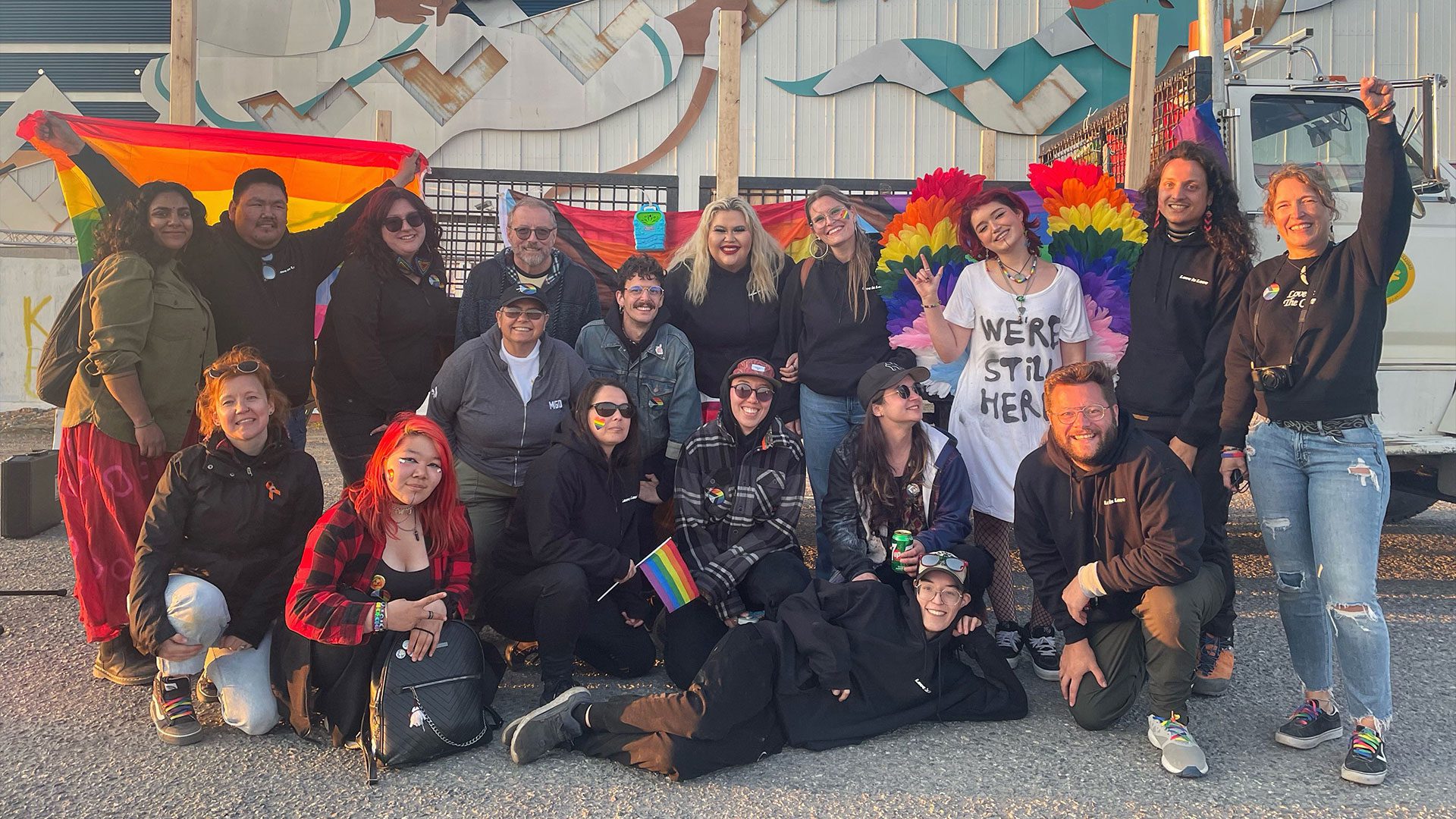
Despite the draw of larger cities, Niivi and Tobi want queer Indigenous people to stay connected to their roots while they’re exploring their identities.
“Before we got colonized, we had so much information about like queer people. When someone was trans in that community, for example, someone was born male and they wanted to be female, that person would switch from male roles to female roles and be treated as a woman by the whole community,” said Niivi.
“After finally ripping off the Band-Aid and deciding that I am Two-Spirit and coming out as Two-Spirit, I’ve been like, so much more comfortable in my identity as an Inuk are and as a trans person, because as Indigenous people and as trans people, those identities cannot be separated,” said Tobi.







